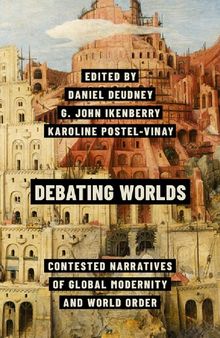 جزییات کتاب
جزییات کتاب
By the last decade of the twentieth century, the great questions of modernity seemed to be answered. With the collapse of the Soviet Union and global communism, the liberal democratic capitalist project seemed to be the only one left standing, and in the 1990s the "liberal ideal" spread worldwide. Today, of course, this universalistic narrative rings hollow. The global distribution of power has shifted and the preeminence of the West is receding as new directions for world order emerge. China is rapidly ascending as a peer competitor of the United States, bringing with it a powerful new global narrative of grievance and revision. Political Islam also burst onto the global scene as a multifaceted transnational movement reshaping regional political order and geopolitical alignments. With the rapid advance of climate change, there have arisen new narratives of global endangerment and dystopia. Far from converging, fragmentation and contestation increasingly dominate debates over world order.In Debating Worlds, Daniel Deudney, G. John Ikenberry, and Karoline Postel-Vinay have gathered a group of eminent scholars in the field to analyze the various ways in which the West's dominant narrative has waned and a new plurality of narratives has emerged. Each of these narratives combines stories of the past with understandings of the present and attractive visions of the future. Collectively, the contributors map out these narratives, focusing primarily on their key features, origins, and implications for world order. The narratives prominent on the world stage are a volatile mix of components, but they also differ in scope--some are regional and civilizational without global aspirations, while others cast themselves as globally expansive and universally ambitious. Covering the most influential narratives currently shaping world politics, Debating Worlds is an essential volume for all scholars of international relations.



 دانلود کتاب
دانلود کتاب

 جزییات کتاب
جزییات کتاب





 این کتاب رو مطالعه کردید؟ نظر شما چیست؟
این کتاب رو مطالعه کردید؟ نظر شما چیست؟
